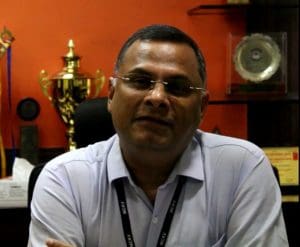Mr. Neelkantha Gupta
Director, M. C. Kejriwal Vidyapeeth

Despite the cynicism and skepticism about the NEP 2020 voiced by several eminent educationists and thought leaders, I feel quite optimistic about it. Here, at last, is a government policy document talking about education in a language I have been excited about for the past two decades. Education, the NEP 2020 explains, should be, inter alia, experiential, holistic, integrated, inquiry-driven, discovery-oriented, learner-centred, discussion-based, flexible, enjoyable, engaged, multi-disciplinary, and aim not only at cognitive abilities but also social, ethical and emotional capacities. Its broad sweep reassuringly includes a focus on early childhood care and education, in which foundation literacy and numeracy skills are to be honed, and guidance on learning to learn given. I was exposed to this language about two decades ago by internationally known education reformers like Ken Robinson, Pasi Sahlberg, Howard Gardner, Linda Darling-Hammond, Yong Zhao, Andy Hargreaves, Dennis Shirley, and Alfie Kohn. I thought the NEP 2020 was a whiff of fresh air in the stuffy exams and marks-obsessed system that most of us are products of, and which many of us, as educators, have aided and abetted.
Refreshingly, the NEP 2020 also talks about drinking from the magical founts of our very own great cultural and educational heritage, unpardonably neglected for centuries. Wisely, it puts the focus back on the importance of mother languages – a matter after my heart. Study after study has shown the salutary role the mother tongue plays in a child’s healthy mental, intellectual, emotional, and psychological development, especially in the early years. Studies have also shown that a firm foundation in one’s mother tongue helps in learning other languages.
The NEP 2020 would like the education it envisions to become the norm by 2040. Finland also took about 20 years to overhaul its school education system. The NEP 2020 gives us approximately the same amount of time to get our act together. I am optimistic that by 2040 our country would have produced an entirely new cadre of educators, fully exposed to and well-versed in the NEP 2020 philosophy, a thorough grounding in which they would have received in their updated teacher training.
The challenge lies with the current generation of teachers in a majority of our country’s 15 lakh + schools who were trained in the pre-NEP 2020 lecture-test-grade mode, the ‘sage on the stage’ mode, and the one-way knowledge transmission mode. We are, therefore, understandably uncomfortable with ideas like cross-disciplinary curricula that inculcate transversal skills; partnering our students in a democratic learning relationship; creating knowledge in collaboration with them; school as a learning community; — concepts and practices no longer very new in educationally high-performing countries.
Of course, there are and will be many short-term orientation programmes to help teachers to align their thinking, attitude, methods, techniques and practices with the requirements and expectations of NEP 2020. However, what is needed on our part is research and independent hard work to explore and absorb the path-breaking NEP 2020 spirit, and creatively and innovatively use it to bring about a sea change in the way we teach, assess, manage our relationships with our students, and function as educators. We also have to carry the parents with us. If 2040 is the target, two years have already passed.


